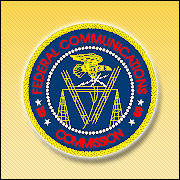
The Federal Communications Commission has voted to forward what it calls a “third way” toward broadband regulation.
Following a big legal loss in April, when a federal circuit court ruled that the FCC had no authority to regulate Internet traffic, the agency has been scrambling to find ways to stay relevant on the issue. It has remained adamant that it would find a way to play the role it set for itself as consumer advocate in the rough-and-tumble world of high-speed Internet access.
Now, toward that goal, the commissioners voted 3-2 to proceed with the middle-of-the-road plan, splitting down party lines. The proposal is open for public comment until July 15; reply comments are due on August 12.
The agency proposes to stay out of the way of Internet content and applications, leaving them, as it said, “generally unregulated under Title I of the Communications Act.” However, it wishes to classify Internet connectivity itself as a telecommunications service under Title II. The FCC will then voluntarily set aside all provisions of Title II regulation except those that affect “universal service, competition and market entry, and consumer protection policies.”
Staying in the Game
At issue is whether the FCC has any authority at all over broadband communications. The April ruling, in a case involving cable company Comcast, seemed to indicate that it did not. The court ruled that the agency had no legal ground for sanctioning Comcast for attempting “traffic shaping” — the practice of slowing some content over broadband connections in favor of other transmissions.
However, FCC Chairman Julius Genachowski insisted that his agency did have a role in protecting the public interests, ensuring universal access to the Internet, and providing a level playing field for competition.
Thus, Comcast and companies like it, which serve up both proprietary content and open Internet media, have an obligation to adhere to “Net neutrality” and deliver all transmissions on equal footing and at equal speeds, the agency asserted.
For some time, observers have been waiting for the U.S. Congress to step in and either introduce new legislation clearly defining the FCC’s power or enacting legislation regulating the industry.
The April Comcast decision “restricts competition,” Claire Simmers, chair and professor of management and international business at St. Joseph’s University, told the E-Commerce Times.
It would be ideal if the federal legislators would resolve the situation, she remarked, but so far that hasn’t happened.
In lieu of legislative input, the FCC has sought ways to stay in the game on its own. Opposition to reclassifying all Internet services under the telecommunications definition — the “second way” — was strong, so Genachowski proposed a middle ground.
The agency’s “National Broadband Plan,” released earlier this spring, is on the line. Among many other initiatives, the plan sets out goals for providing broadband access to rural and low-income communities, seeking to bridge the digital divide for many Americans.
Internet Industry Players Weigh In
While controversy swirls over whether the FCC should even be seeking authority over broadband communications, a group of Internet and electronics industry companies have thrown their support behind the “third way” plan.
The Open Internet Coalition sent a letter of support to Genachowski applauding the proposal that the FCC treat broadband as a telecom utility in very limited ways. Companies in the coalition include first-generation Internet heavyweights Amazon.com and eBay, search and advertising giant Google, and relative newcomers such as Skype and Netflix.
Other Internet application providers seems to be taking a wait-and-see approach.
The marketplace has regulated itself fairly well, Andrew Kippen, vice president of media content aggregation software maker Boxee, told the E-Commerce Times.
Boxee has been “pleased with the way the FCC has handled tech and broadband issues” of late, said Klippen. “We hope they keep us — the public end-users and entrepreneurs — in mind.”
That will require keeping the Internet “a fair place to compete,” he concluded.













































Social Media
See all Social Media